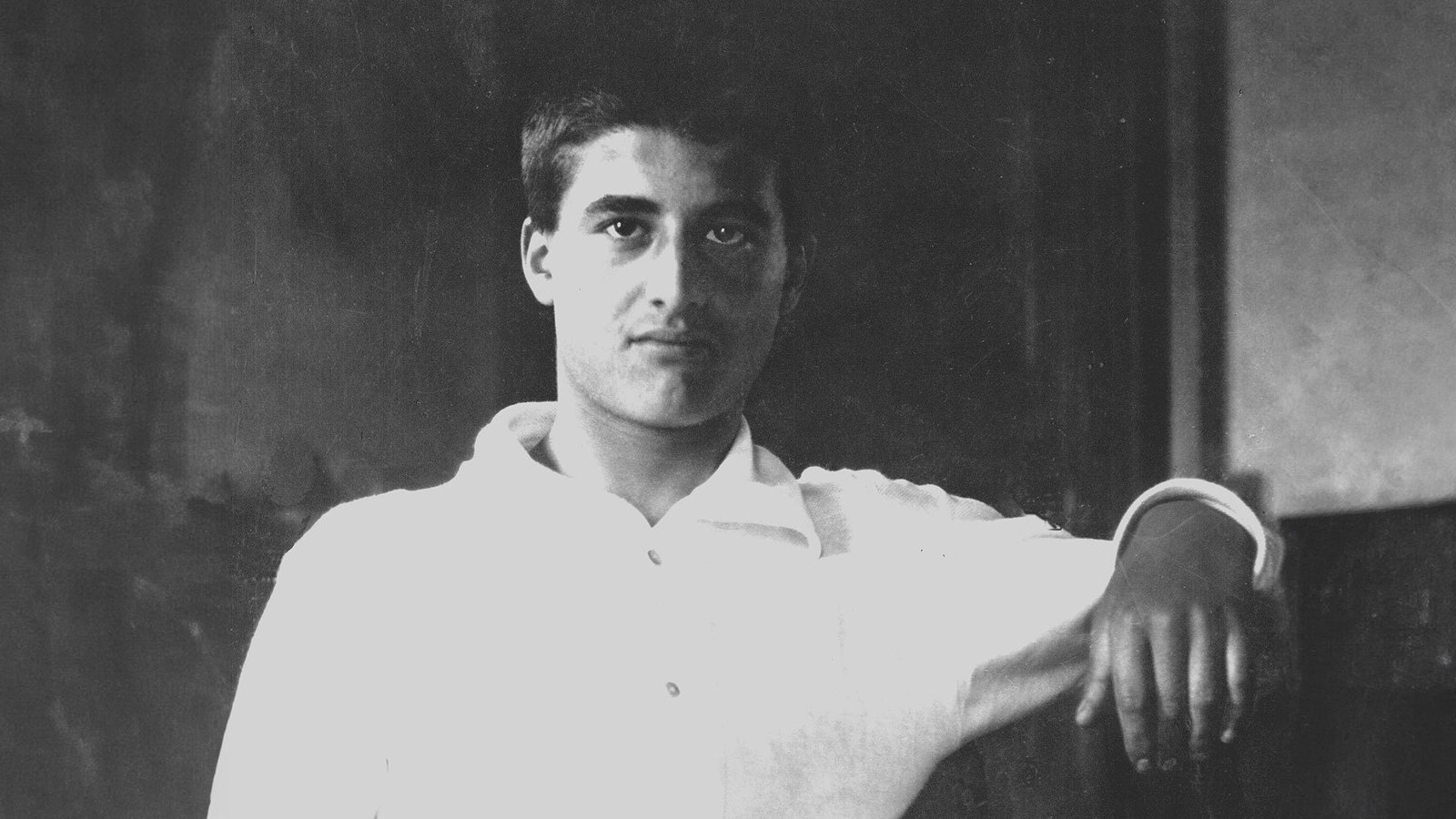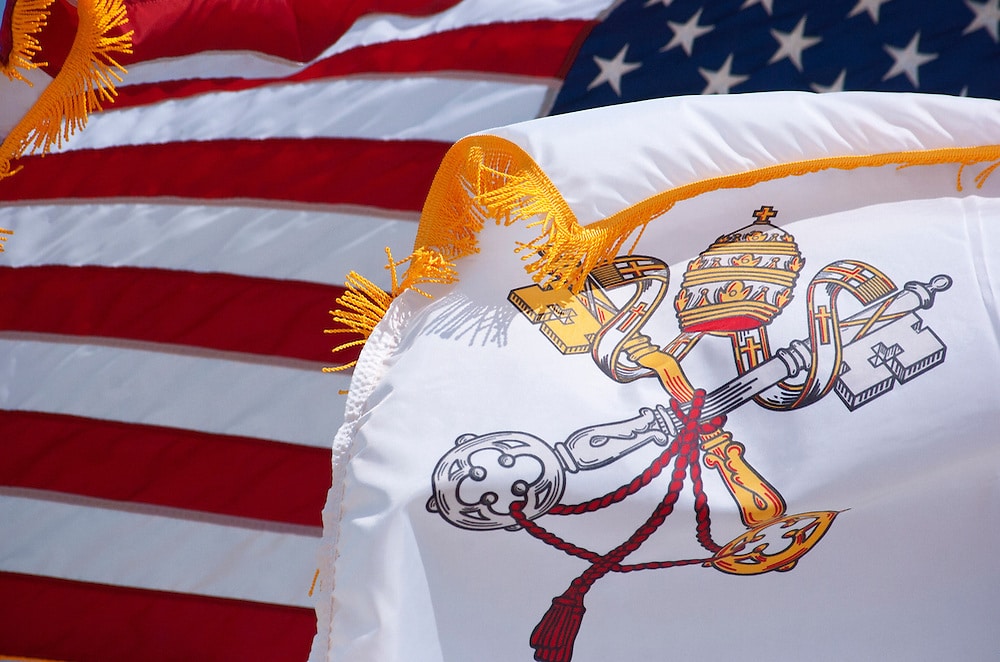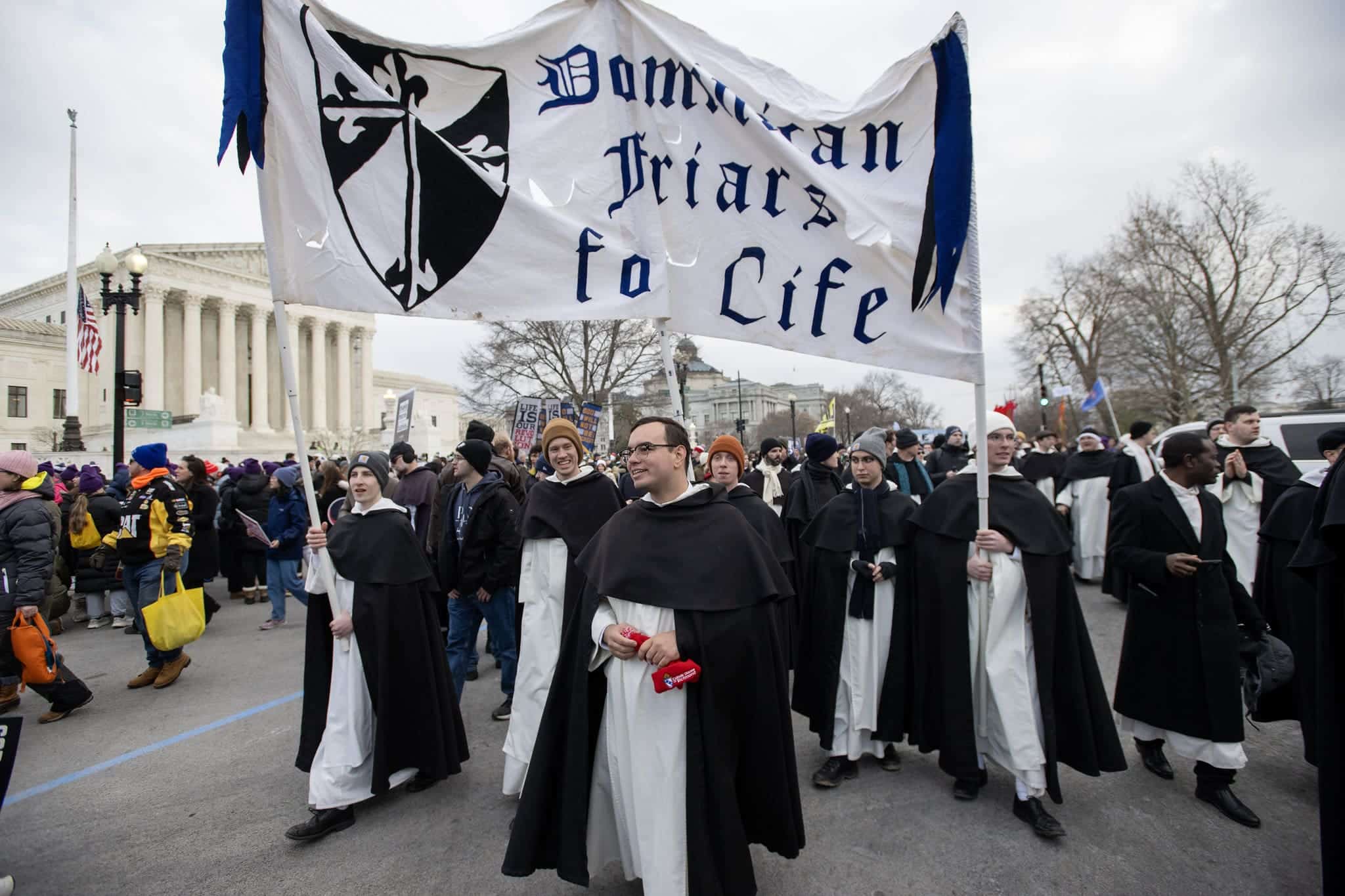
The Angelic Doctor as a Guide to Marian Consecration: An Interview with Fr. Gregory Pine, O.P.
By Dominican Friars Foundation Staff
Fr. Gregory Pine, O.P., recently served as Assistant Director for the Thomistic Institute and is currently studying for his doctorate at the University of Fribourg (Switzerland). Fr. Gregory is co-host of the podcast Godsplaining and recently co-authored Marian Consecration with Aquinas with Matt Fradd, published by TAN Books.
What makes up a Marian consecration?
Marian consecration is just a way of giving oneself to Our Lady more intentionally. In baptism, we are given to the Lord and His Mother. With baptism comes an abundance of grace. But, we don’t always safeguard and grow this grace as we ought. A Marian consecration is a means of seeking to do just this—to stir up baptismal graces in order to live more devoutly in relationship with the Mother of God and her Son.
Why is St. Thomas Aquinas a helpful source in guiding others in their consecration to Mary?
St. Thomas is a helpful guide because he teaches us how best to think about God and the things of God. St. Thomas never wrote a book on Marian consecration, but his teachings on God, creation, grace, Christ, the Blessed Mother, and the sacraments—when taken together—orient us towards a healthy and holy Marian piety.
To whom would you recommend your book?
I would describe the book as apologetic and mystagogical. By apologetic, I mean that it tries to give reasons for our Marian devotion. By mystagogical, I mean that it tries to propose the mysteries of Mary’s life as objects of contemplation. So, the book is addressed to those who have an interest in defending the faith and seeing its intelligibility, on the one hand, and in receiving the faith as nourishment for their interior lives, on the other.
Is it ever too late to start a consecration to Mary?
In one of the first circles of Purgatory that you visit in the Divine Comedy—the circle of the late-repentants—Dante and Virgil happen upon the soul of one Buonoconte da Montefeltro. In the course of the encounter, we learn that Buonoconte (who had an otherwise uninspiring spiritual life) was saved from damnation at the very last moment of his life. What made the difference in deciding his fate? He died with the name of Mary on his lips. So, is it too late? Not a chance.
You can purchase “Marian Consecration with Aquinas” here!






